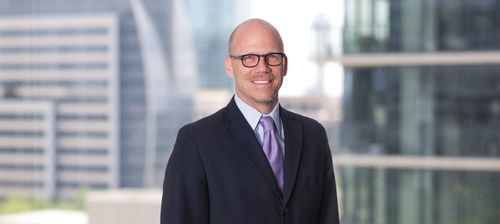Pro Bono In Action
Winston Adapts Pro Bono Service Models to Meet Urgent COVID-19 Restrictions
Pro Bono In Action
Winston Adapts Pro Bono Service Models to Meet Urgent COVID-19 Restrictions
April 21, 2020
Over the past several months, we as a global community have experienced a complete upheaval of our everyday lives. While no sector of society remains untouched by the effects of the COVID-19 pandemic, it is an unfortunate reality that the most vulnerable among us face additional hardships.
For many, this societal pause is more than a temporary inconvenience. It has effectively interrupted processes that secure individuals’ rights, anchor their financial wellbeing, and insure livable conditions for themselves and their family members. The same quarantine-related roadblocks that hamper their progress also hinder our ability to provide those individuals with much-needed pro bono assistance.
That is why Winston & Strawn is creating a digital infrastructure that allows us to continue our pro bono efforts through the COVID-19 outbreak. Our new programs represent more than an effort to establish a “new normal” while in quarantine. Instead, they are a natural extension of our ongoing fight to help our neighbors across the United States, from New York and Chicago to Texas and the West Coast.
New Challenges for DACA
Immigration is one of the most active pro bono areas at Winston; Pro Bono Counsel Maria Kutnick and Immigration Pro Bono Supervisory Attorney Nareeneh Sohbatian manage a vast docket of evolving issues. Their purview includes the ever-evolving matter of DACA.
With the future of DACA (Deferred Action for Childhood Arrivals) in the balance pending the U.S. Supreme Court’s ruling expected in June, it has become imperative for DACA recipients to complete their renewal of benefits applications on a timely basis.
Due to limited resources and the national impact of COVID-19, Kutnick, in collaboration with the National Immigrant Justice Center (NIJC), organized remote pro bono clinics to help ensure current DACA beneficiaries receive critical assistance in their efforts to maintain their lawful immigration status and employment authorization.
The first such clinic on April 2, 2020 consisted of a WebEx training for volunteer attorneys followed by conference calls with clients. During that time, volunteers helped clients fill out the required renewal of benefit applications over the phone. Then, additional volunteers helped clients finalize and file their renewal packets within a week of the clinic. Now, NIJC will review the applications electronically before they are submitted. Winston has also partnered with Catholic Charities Houston to help them achieve the same goal in Texas.
Similarly, Winston teamed up with Immigrant Legal Defense in California to assist DACA clients with a virtual clinic model. However, this program will focus on healthcare workers and other essential-business employees who live in the United States legally under the DACA program.
“It’s tragic that, during a time when tax deadlines have been postponed, eviction notices cancelled, and a wide range of payments deferred, the U.S. Customs and Immigration Service has not postponed any immigration filing deadlines,” said Kutnick. “Families that have little or no access to home office technology should not have to worry that their status has been revoked while the nation is under quarantine. Winston is grateful to be in a position to assist, and is currently in discussions with pro bono partners across the nation to explore similar remote clinics for those in need.”
Remote Clinic Assistance
Winston is currently assisting public interest law organizations in an effort to set up and staff remote intake clinics. This vital initiative insures those groups can continue to serve their clients, both individuals and small businesses, with general legal matters during the quarantine. For example, we are currently lining up volunteers to assist Chicago Volunteer Legal Services (CVLS) and Houston Volunteer Lawyers (HVL) with their remote intake clinics. This includes conducting phone interviews with clients and drafting detailed case memorandums so CVLS and HVL can review the merits of each case.
“These activities typically take place in person, so our partner organizations and their clients need assistance to quickly adapt to a remote-service model,” Winston Senior Pro Bono Counsel Greg McConnell said.
“We are working closely with Legal Aid Chicago, which launched an offsite version of the monthly, in-person intake clinic we usually co-host in the economically-distressed North Lawndale area,” he continued. “It’s also incredibly important to plan for post-COVID recovery; the natural next step was to offer similar services to the neighborhood’s small business owners. The Chicago Lawyers’ Committee for Civil Rights is spearheading that outreach with the support of Winston’s volunteers.”
Navigating Public Benefits
The COVID-19 pandemic has already caused millions of people to lose their jobs and health coverage or experience reduced income. As a result, the need for public benefits like SNAP food assistance, Medicaid health coverage, and cash assistance for families with children (TANF) and the aged, blind or disabled (AABD Cash) is dramatically increasing.
In Illinois, the uptick in applications became particularly challenging when the Illinois Department of Human Services (DHS), the administrator of these benefits, closed most of their offices due to the quarantine.
In response, Winston joined Legal Aid Chicago’s Public Benefits Enrollment Assistance Volunteer Project. This program digitally connects volunteers with clients who need assistance navigating the benefits application process.
During an hour-long consultation, volunteers will collect personal information and help clients fill out necessary forms. Then, after successfully completing the application, volunteers will transmit the information to Legal Aid Chicago. If there is a delay or a denial, volunteers are also encouraged to assist with the appeal of that denial, with support from Legal Aid Chicago.
Lending a Hand to Small Businesses
Sadly, small businesses are being ravaged by the current global crisis. As a result, Winston is providing critical pro bono assistance to Public Counsel, Bet Tzedek, and Legal Services for Entrepreneurs in Los Angeles in connection with their small business projects. The firm is also taking a leadership role and developing projects in Texas, North Carolina, and Chicago.
“We have reached out to these and other agencies to see how we can help their clients, and have been receiving a steady stream of referrals in need of help with labor and employment, real estate/lease negotiations, and contractual matters,” Kutnick said.
Winston volunteers are doing research and creating FAQs in these areas to get the needed information and guidance out to those who need it as quickly as possible.
Pressing Questions in Real Estate
In New York, Winston’s team of real estate attorneys is assisting non-profit clients to address new and pressing COVID-19-related leasing concerns. Partner Bill Lang is leading this initiative through our long-standing connections with the Pro Bono Partnership and Lawyers Alliance of New York.
Supporting Local Heroes
We owe a great debt of gratitude to the essential workers who keep us safe and healthy. This is especially true of the health care professionals on the front lines of the pandemic—the individuals who, on a daily basis, save our loved ones’ lives.
In an effort to provide peace of mind to those professionals, Maria Kutnick assisted the Chicago Bar Foundation to launch Wills for Heroes. This virtual program provides free estate planning services to essential health care workers including simple wills and powers of attorney.
This initiative has a long history of supporting brave service people. The Wills for Heroes program was first offered to the police officers and firemen who served as first responders on 9/11.
View all of our COVID-19 perspectives here. Contact a member of our COVID-19 Legal Task Force here.




